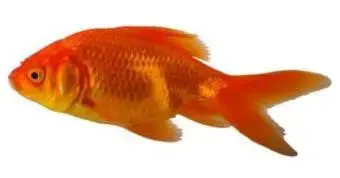Goldfish Care Tips and Guidelines
A Free Monthly Resource For Goldfish Enthusiasts
October 2014
Issue #010
In this issue
Help, my goldfish are dying!
What's new on the Website
www.about-goldfish.com/
I receive many emails from enthusiasts asking for help because their goldfish are dying.
Often, by taking a few simple actions you can quickly reverse the situation.
Help, My Goldfish Are Dying!

The old saying "time is of the essence" is very appropriate when your goldfish are dying.
Even though I love receiving your emails, you really don't have time to email me and wait for an answer. You need to act quickly to find the reason why your goldfish are dying, or start eliminating the more common causes.
Steps To Take When You Find Your Goldfish Dying
- Don't panic! Easy to say, but you can't do anything for the dead fish, but you can do plenty for those still alive.
- Establish whether it is just one fish that has died suddenly, or more are affected. Look for obvious signs such as fish gasping at the surface, or sitting on the bottom. Fish can also be hiding in crevasses or amongst plants so try and account for all your fish. This is not easy in a large unfiltered pond.
- Stabilize the patients. If you haven't yet identified the cause of the problem, you can make some guesses.
It is highly likely that water conditions have caused the problem. The surviving fish need to be removed from their water into fresh.
Even if it isn't the cause, fresh well oxygenated water will help the stressed fish recover. If you haven't got enough aged water for a complete water change, make a half water change. This is why having on hand API Stress Coat or some other water treatment that removes chlorine essential in these types of emergencies.
You still need to make sure the water temperatures are within a few degrees of each other and the pH values are the same. If you haven't got a test kit you will have to very gradually introduce the fish into the new water over half an hour, but this is just added stress for the fish.
Once the fish are in fresh water, add a heaped teaspoon per gallon of non-iodized cooking salt to the water. This acts as a tonic.
If you see an immediate improvement in the fish, you have probably identified the cause of the problem. If the pond or aquarium was a new setup under a month old, there was probably an ammonia spike.
If the setup is well established, check the pH value. Don't think that just because you have a filter and the water is clean the pH value is at the correct level.
Ponds can turn green over summer and the algae can cause a pH spike. Some algae also release toxins. Don't forget water plants give off oxygen when exposed to sunlight but give off carbon dioxide at night. This is why heavily planted ponds and aquariums need their water aerated or circulated with a filter.
Once the patients are in fresh water this eliminates pH level, ammonia, oxygen deficiency, heavy metals poisoning and many other problems associated with water. It gives you valuable time to identify whether the problem is water related or some other disease.
If the problem is water related, the fish still need to be given time to recover because conditions have to be fairly extreme to kill goldfish.
Not Enough Information Delays Treatment
When I receive requests for advice, I often have to email back asking for additional information before I can start suggesting treatment options. This all takes time, and time is usually something the dying goldfish don't have.
Key information can include:
- Size. "My goldfish is two inches long" isn't helpful. Is that body or total length? A one inch Comet can have a one inch tail. Always use body length measurement from the tip of the nose to the end of the caudal peduncle.
- Water condition. You should have tested the water and be able to provide pH and ammonia levels.
- Goldfish variety. Deep bodied goldfish have more air bladder balance problems than do long bodied varieties.
- Feeding. What do you feed your goldfish?
- Filtration. Do you have a water filter?
This and any other information you can provide such as what you are keeping your goldfish in are all helpful to build up a picture of your goldfish environment.
One of the key ways to avoid discovering your fish suddenly dying without warning is observation.
At each feeding carefully observe each of your fish feeding. Are there any that are swimming with difficulty or have little interest in feeding? Are there any changes in behavior such as twitching or scratching?
These are all early warning signs.
To read about goldfish diseases click here...
What's New On The Website
Goldfish diseases
I have added more treatment options to some of the pages for the more common diseases such as lice, anchor worm and Ich disease.
Read more…
Comments? Ideas? Feedback? I'd love to hear from you. Just reply to this e-zine and tell me what you think, or what topics you want covered.
Next Month’s Topic
Setting up a spawning pond.
www.about-goldfish.com/

